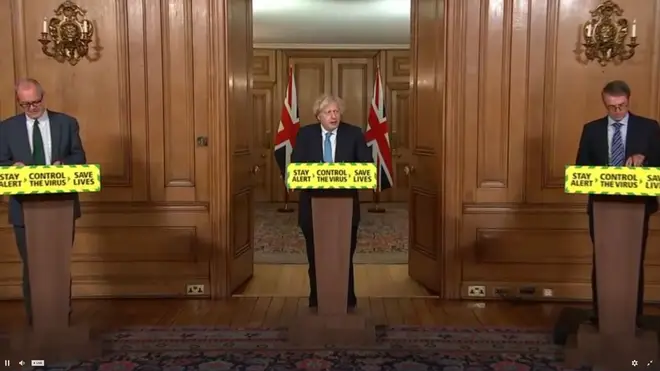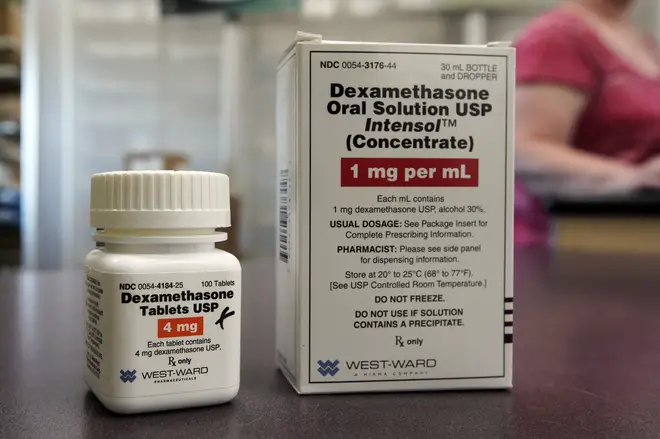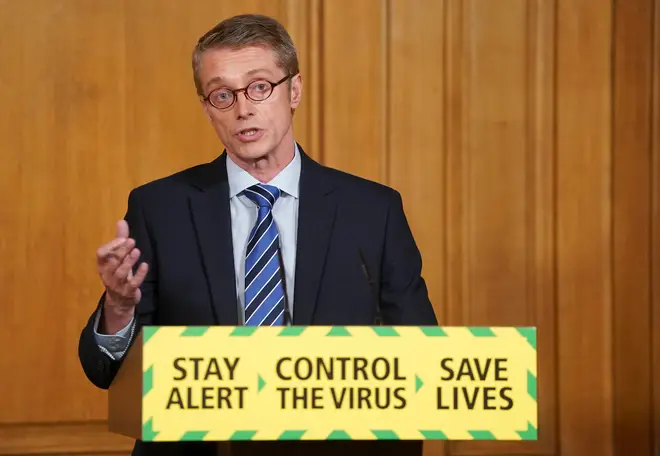
Henry Riley 4am - 7am
16 June 2020, 17:51

Peter Horby on life saving Dexamethasone
The Prime Minister and government scientists have hailed dexamethasone as "the first medicine to reduce death in any group in relation to Covid-19."
Speaking at the Downing Street press conference, Boris Johnson called the steroid treatment the "biggest breakthrough yet" in fighting coronavirus.
Chief investigator Professor Peter Horby, who ran the study, explained that the drug is already widely available in the UK, meaning it can be used to treat patients immediately.
The cost of treatment for eight patients is around £40, and one life in this group can be saved.
There is also a 35 per cent reduction in risk of death in patients on ventilators with Covid-19 when Dexamethasone is used.
With 11,500 patients volunterring to take part in the study, Prof Horby said this was that the biggest clinical trial in the world had been carried out.
He says what they found from Dexamethasone "was really quite remarkable".
Prof Horby said around 75% per cent of patients in hospital will receive a benefit from the drug.
"This is really good news," he added.

Boris Johnson continued: "I am proud of these British scientists, backed by UK Government funding, who have led the first, robust clinical trial anywhere in the world to find a coronavirus treatment proven to reduce the risk of death.
"I'm very grateful to the thousands of patients in this country who volunteered for the trials - thank you."
He said the drug would now be available across the NHS and "we have taken steps to ensure we have enough supplies, even in the event of a second peak".
The Prime Minister continued: "Of course, while the chances of dying from Covid-19 have been significantly reduced by this treatment, they are still far too high. So we must redouble our research efforts and we certainly will.
"But today, there is genuine cause to celebrate a great, British achievement and the benefits it will bring not just in this country but around the world.

Sir Patrick Vallance, Chief Scientific advisor to the government, said at the press conference that this is "the first medicine to reduce death in any group in relation to Covid.
"That is the start of something, it shows this is possible to do," he said.
"We can now look at other drugs and look to build on that. It is the start of something important and shows what we are trying to do it is possible."
However, Sir Patrick also cautioned that the steroid dexamethasone does not stop people catching coronavirus or going into hospital with it.
"It reduces the death for those who are in hospital who require oxygen, or in ICU and require oxygen, and it's a very important effect.
"But... it's roughly one in eight who survive as a result of this - a very important effect, but certainly not an effect-size that would say therefore you don't need to worry about the other measures to try and reduce the spread of this infection."

Earlier today, scientists hailed dexamethasone as a "major breakthrough" in treating seriously ill Covid-19 patients.
The drug was approved for NHS use today.
Health Secretary Matt Hancock said: “I’m absolutely delighted that today we can announce the world’s first successful clinical trial for a treatment for COVID-19."
This astounding breakthrough is testament to the incredible work being done by our scientists behind the scenes.
“From today the standard treatment for COVID-19 will include dexamethasone, helping save thousands of lives while we deal with this terrible virus."
More than 11,500 patients from 175 NHS hospitals have been enrolled on the Recovery trial since it was set up in March to test a range of potential coronavirus treatments.
In the dexamethasone study, 2,104 patients received 6mg of dexamethasone once a day by mouth or intravenous injection for 10 days.
Their outcomes were compared with a control group of 4,321 patients.
Over a 28-day period, the mortality rate among patients requiring ventilation was 41%, and for those needing oxygen it was 25%.Among those not requiring respiratory intervention the figure was 13%.
The study revealed the steroid reduced deaths by a third in ventilated patients and a fifth in people needing oxygen.
There was no change in deaths among patients who did not require respiratory support.